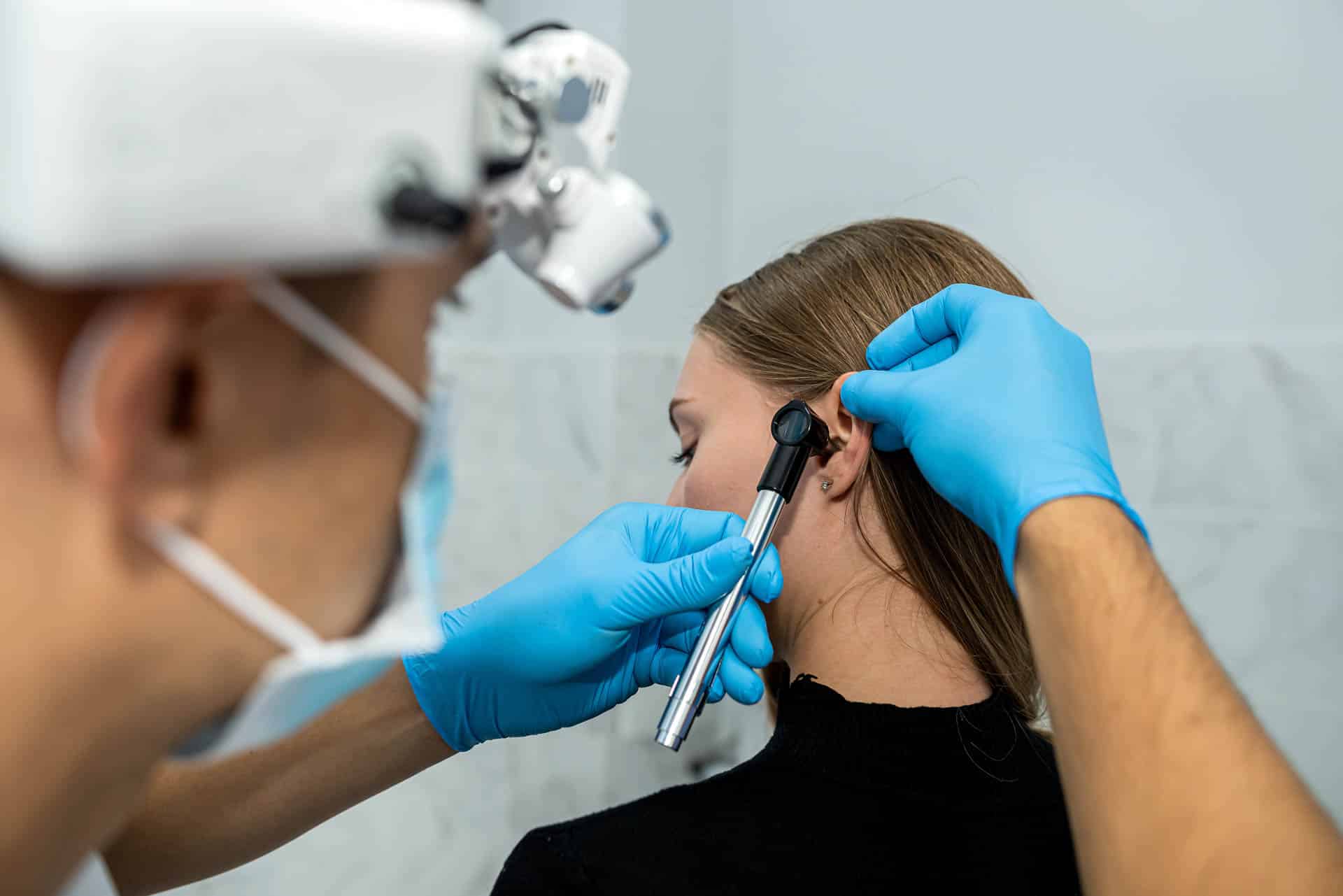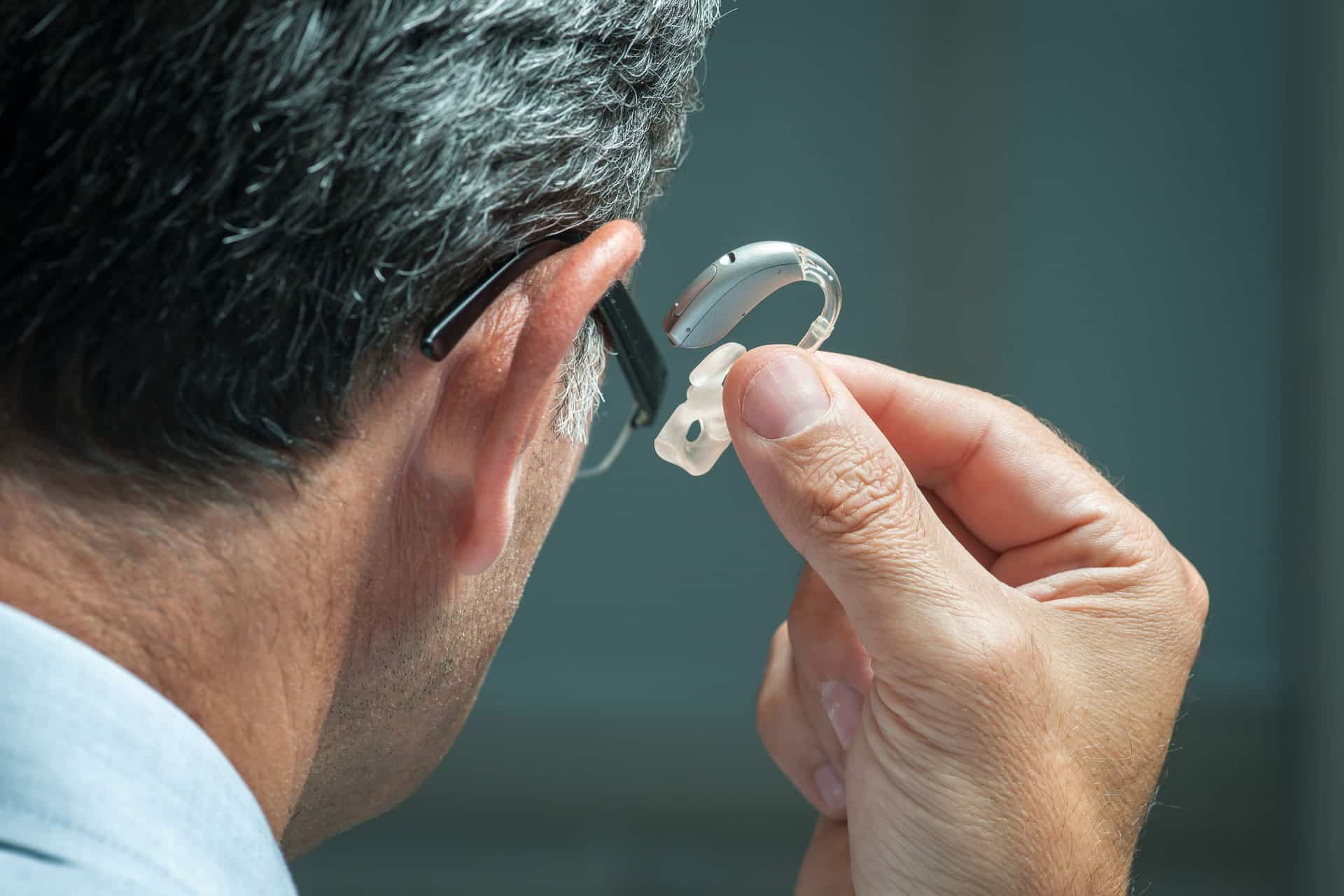Delivery in 2-3 working days
Hard of hearing or deaf? These are the differences
Imagine living in a world where sounds and noises are muffled or even completely silent. For millions of people around the world, this is the reality. They live with hearing loss or deafness, two forms of hearing loss that can profoundly affect our lives. But what actually distinguishes hearing loss from deafness? Learn more in this article.
Definition: Hearing loss and deafness
Hearing loss and deafness are two different types of hearing disorders. Sufferers experience a loss of hearing, but the degree and type of loss varies.
Hearing loss describes a condition in which a person has difficulty perceiving sounds in one form or another. This can range from a mild inability to hear soft sounds to complete hearing loss. It is also important to note that hearing loss can be unilateral (one ear affected) or bilateral (both ears affected). Depending on various factors such as cause, degree of hearing loss and individual circumstances, hearing loss can be temporary or permanent and can affect people of all ages, from children to older adults.
Deafness, on the other hand, represents the extreme degree of hearing loss. It is characterized by the total inability to hear sounds. This means that people who are deaf usually cannot perceive sounds or speech, no matter how loud they are. Deafness can be congenital, meaning it is present from birth, or it can occur during life. It is also worth noting that deaf people often use sign language as their main form of communication.
Although both conditions are forms of hearing loss, they are distinctly different in terms of their severity and impact. Therefore, they require individual approaches to diagnosis, treatment and management.
Causes of hearing loss and deafness
There are numerous factors that can contribute to the development of hearing loss or deafness. They range from genetic predispositions to external environmental influences and physical conditions. Here are some of the most common causes explained in detail:

Damage to the hair cells in the inner ear (cochlea):
These sensitive cells play a key role in converting sound waves into electrical signals that the brain can interpret. They can be damaged by a variety of factors, including excessive volume and prolonged exposure to loud sounds, as well as natural aging processes. If the number or function of these cells is impaired, it results in hearing loss.
Infections:
Certain infections, particularly those affecting the middle ear, can lead to temporary or permanent hearing loss. Middle ear infections, for example, can cause swelling and accumulation of fluid behind the eardrum, which impairs hearing.
Medication:
Some drugs called ototoxic can damage hearing. These include certain antibiotics, loop diuretics, and drugs used to treat cancer or serious infections.
Genetic diseases:
Some people are genetically susceptible to hearing loss. These conditions can be inherited from generation to generation and often cause hearing loss or deafness from birth or early childhood.
Skull or ear injuries:
Traumas to the skull or ears can affect hearing. These can damage the eardrum, disrupt the ossicles in the middle ear or affect the inner ear.
Diseases:
Certain diseases such as meningitis or measles can cause hearing loss. These diseases can damage the inner ear or cause inflammation that affects hearing.
Problems at birth:
Complications during pregnancy or birth, such as hypoxia, can also lead to permanent hearing loss in the newborn.
Symptoms of hearing loss and deafness
Hearing loss and deafness, although representing different degrees of hearing loss, share a number of similar symptoms. These symptoms can present themselves in different situations and in different ways. Below, we take a closer look at the most common signs and symptoms of these conditions:
Difficulty understanding conversations:
Constant need to increase the volume of the TV or radio:
Frequently asking for repetition during conversations:
Absence of response to loud noises or calls:
It is important to remember that these symptoms can vary from person to person and not everyone will have all of these symptoms. If hearing loss is suspected, it is important to see a doctor or hearing healthcare professional quickly for a comprehensive evaluation and treatment.
Diagnosis of hearing loss and deafness
Diagnosis of hearing loss or deafness is a step performed by an ENT physician. This individual is responsible for the detection and treatment of conditions affecting the ear, nose and throat, including hearing disorders. Typically, the doctor begins with a thorough history of the patient to determine any possible risk factors or previous hearing problems.
Following this, the doctor will perform a series of tests to check the patient's hearing. This may include a physical examination of the ear with an otoscope, hearing tests and other examinations to determine the exact type and degree of hearing loss.
An audiogram is often an important part of this diagnostic process. This test measures the patient's hearing in different frequency ranges and plots the results on a graph showing the hearing threshold in decibels (dB) for each ear. This allows the doctor to get a clear picture of the hearing loss and to understand in which frequencies and at what volume the patient has difficulty perceiving sounds.
Treatment of hearing loss and deafness
Depending on the cause and severity of the hearing loss, different treatment approaches can be chosen:
- Hearing aids can help amplify sounds and noises.
- Cochlear implants can be useful for certain types of hearing loss or deafness.
- For some people, medical or surgical treatment may be helpful.
- Sign language and lip reading can help those affected communicate better.
Living with hearing loss and deafness
Living with hearing loss or deafness can be challenging. It is important to seek support and learn how to adapt.
The OSKAR TV hearing amplifier from faller audio is a useful aid for people with hearing loss. This specially designed device improves the clarity and intelligibility of spoken TV sound by reducing background noise and emphasizing speech. It is particularly helpful for people with hearing loss as it allows them to enjoy TV programs without excessive volume, so that other people in the room are no longer disturbed. With technologies like the OSKAR TV hearing amplifier, people with hearing loss can improve their quality of life and continue to enjoy their favorite activities.



